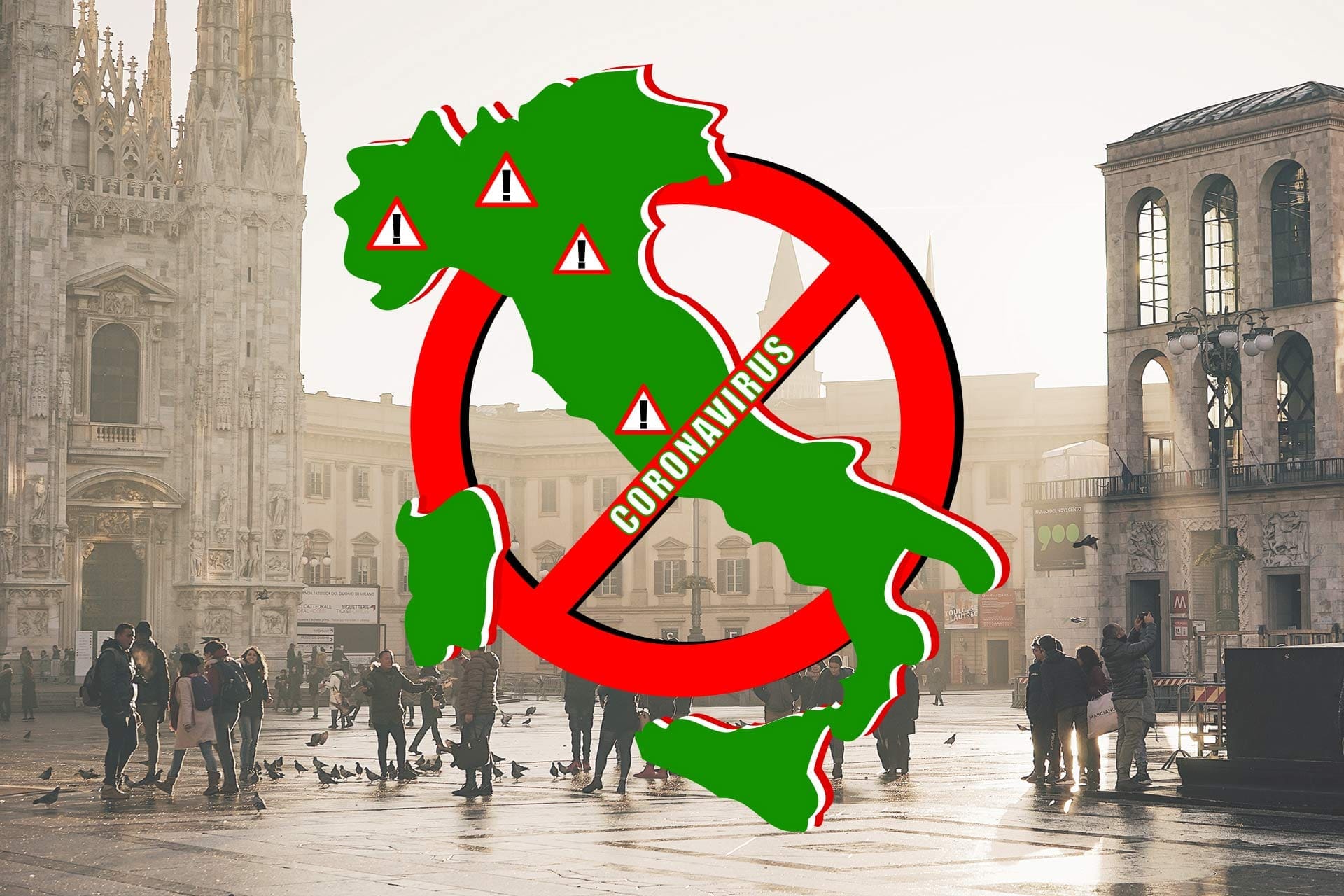Mark Bibby Jackson provides some coronavirus travel advice as well as guidance to those people asking the question – is it safe to travel to Europe?
As the number of people infected by the deadly coronavirus COVID-19 epidemic passes 100,000, the list of countries people are questioning travelling to seems to outnumber the people travelling there. Is it safe to travel to … Germany … France … Spain …Portugal? have become popular Google search terms, while people report the streets of Rome and Venice deserted from tourists.
Is it safe to travel? : a mixed picture
As of 10 March, according to John Hopkins CSSE, the number of people who had contracted the coronavirus COVID-19 had risen to 114,544 with more than 4,000 fatalities, although the vast majority of these – 3,024 – had occurred in Hubei province where the coronavirus originated.

Is it safe to travel to Italy?
Within Europe the country most affected by COVID-19 is Italy with more than 9,000 reported coronavirus infections and 463 deaths.
In Germany, by comparison, just over 1,200 people have contacted the virus out of a population of 83 million. Spain has a similar number of coronoavirus patients, while France (population 67 million) has 1,400. In Germany, there have been two fatalities from the COVID-19 virus, although both France and Spain have reported 30 deaths. The UK in comparison has only 321 coronavirus patients and five deaths.
Even within Italy the situation is very much regionalised with the vast majority of cases reported in several small villages in the north of the country. Figures outside of this COVID-19 epicentre are lower, although on 8 March the Italian PM Guiseppe Conte announced that 16 million people in the north of the country had been placed in a lockdown in a move to prevent an escalation of the problem. The following day he extended the lockdown to the whole of the country, banning all public gatherings and told people to stay at home.
Part of the cause for concern in Italy is the high mortality rate, which is 4.25% according to data from the Italian government, while the global average is around 3.4%. This can be partially attributed to Italy’s ageing population.
Coronavirus travel advice – over 80s most at risk
According to the BBC, the average age of those Italians to have died from COVID-19 is 81, and most of these had underlying health issues. Furthermore almost three-quarters were men.
This is accordance with data from Ignacio López-Goñi, a professor of microbiology and virology at the University of Navarra, published on the Guardian website.

According to him, the mortality rate, based on a sample study of 45,000 people infected in Wuhan, varies by age group. Only 3% of cases involved those under 20, with the mortality rate of under-40s is some 0.2%. This rose to 15% for the over-80s, especially those with a pre-existing condition.
Furthermore, some 81% of those people affected by the coronavirus COVID-19 in the study exhibited only minor symptoms.
Coronavirus mortality rate around 1%
López-Goñi estimates the real mortality rate, taking into account those who have mild symptoms and do not get checked, is around 1.4%, a figure similar to the 1% figure suggested by Professor Chris Whitty, the UK’s chief medical officer.
The research suggests that, so long as you take sensible precautions against contracting the virus, in particular washing your hands frequently and extensively, that the risks of catching the virus are low. Experts suggests that you need to be in contact with an infected person for several minutes, and that you cannot contract the coronavirus COVID-19 simply by passing someone in a street.
Coronavirus travel advice : China battling back
Some positive news is emerging from China, where the coronavirus originated.
On 5 March, 120 new cases of COVID-19 infection were reported. This is the lowest figure in the past six weeks. For the first time since the outbreak started there have been no new cases in the surrounding province of Hubei. While schools may be closing in Europe, they are actually re-opening in China, in places where no new cases have been reported for a fortnight.
On 10 March the BBC reported, “According to official figures, China has only 19 new coronavirus cases today: 17 of them are in Wuhan city and two others from overseas arrivals. Outside of Hubei, there have been no other new infections recorded in the last 24 hours across the country.”
President Xi Jinping visited Wuhan on 10 March in a move that was widely reported as stating that things were getting back to normal.
All this indicates that the coronavirus tends to affect in clusters, is a far greater threat to the elderly and those with a pre-existing condition than to the young, and can be contained, albeit with draconian measures.
Is it safe to travel to Germany, …?
Which brings us back to our original question – should you travel? Clearly, that is your decision to take. The risk might be less than you imagine and the benefits greater than you can comprehend. While it makes eminent sense to cancel events such as ITB Berlin, the Venice Carnival and major sporting events where the risk of infection being spread in a mass crowd is greater, does this apply to individual holiday makers?

A good friend of mine, who runs Hanuman Travel, has just posted an article explaining why now is a great time to visit Cambodia (two confirmed COVID-19 cases), and to see Angkor Wat and the wonderful temples of Angkor just like he first did back in the 1990s, devoid of tourists.
However, if you do travel and show any coronavirus symptoms upon your return, dial 111, and make sure you heed the government’s advice upon self-isolation. The risk to your own health might be relatively small, but the impact of you passing the coronavirus on either directly or indirectly to someone at risk is far greater.
Article updated: 10 March 2020.



